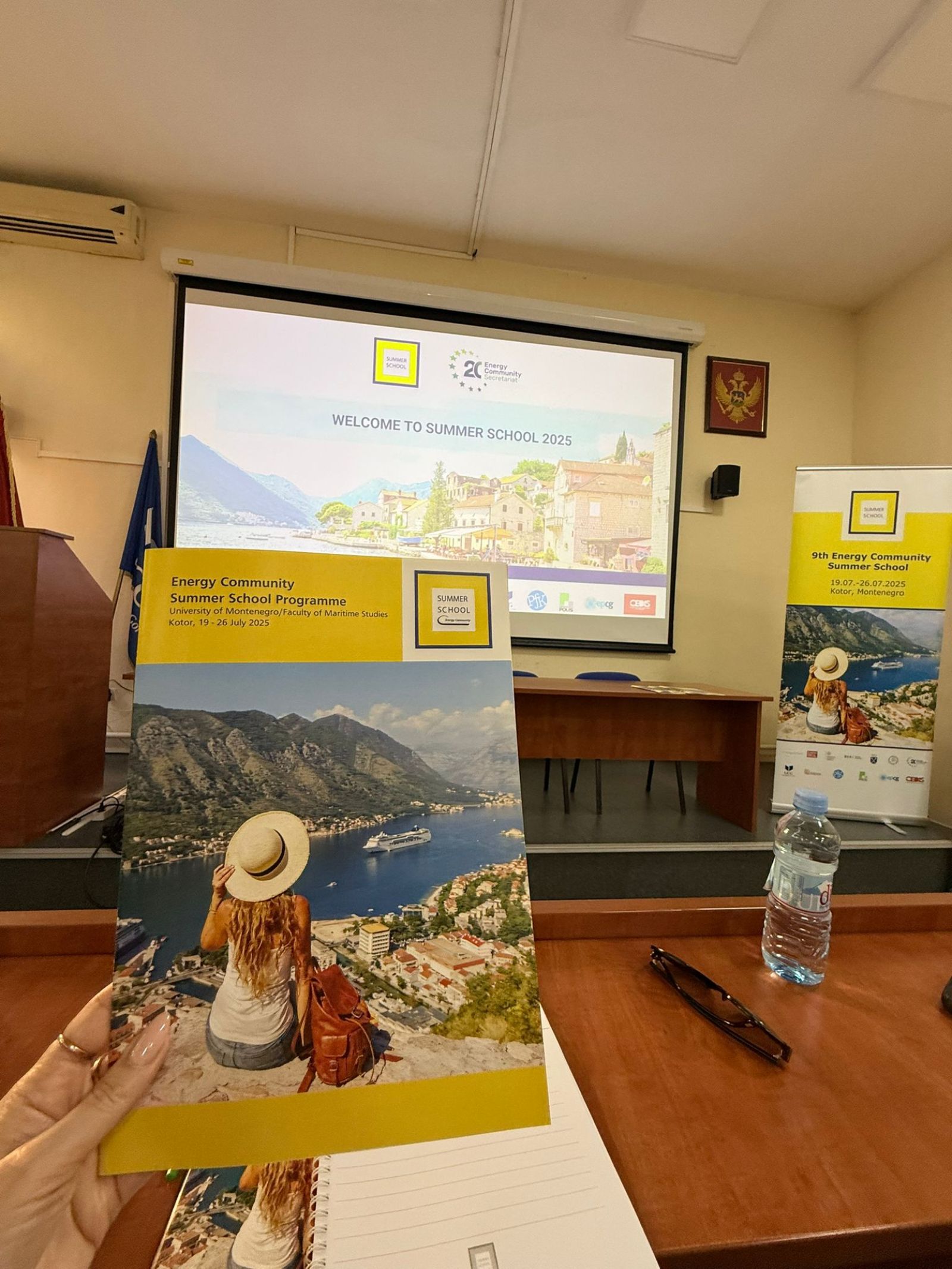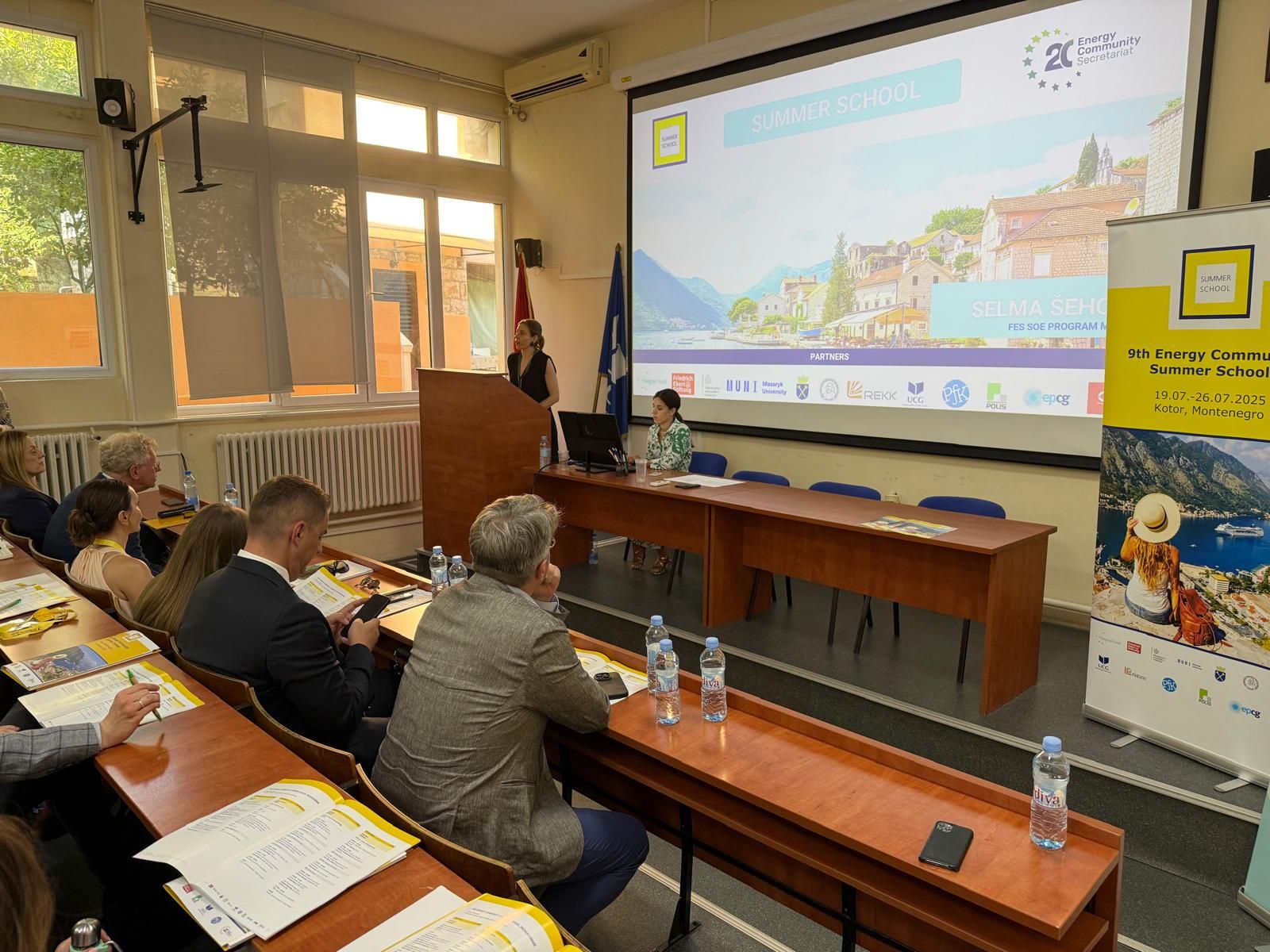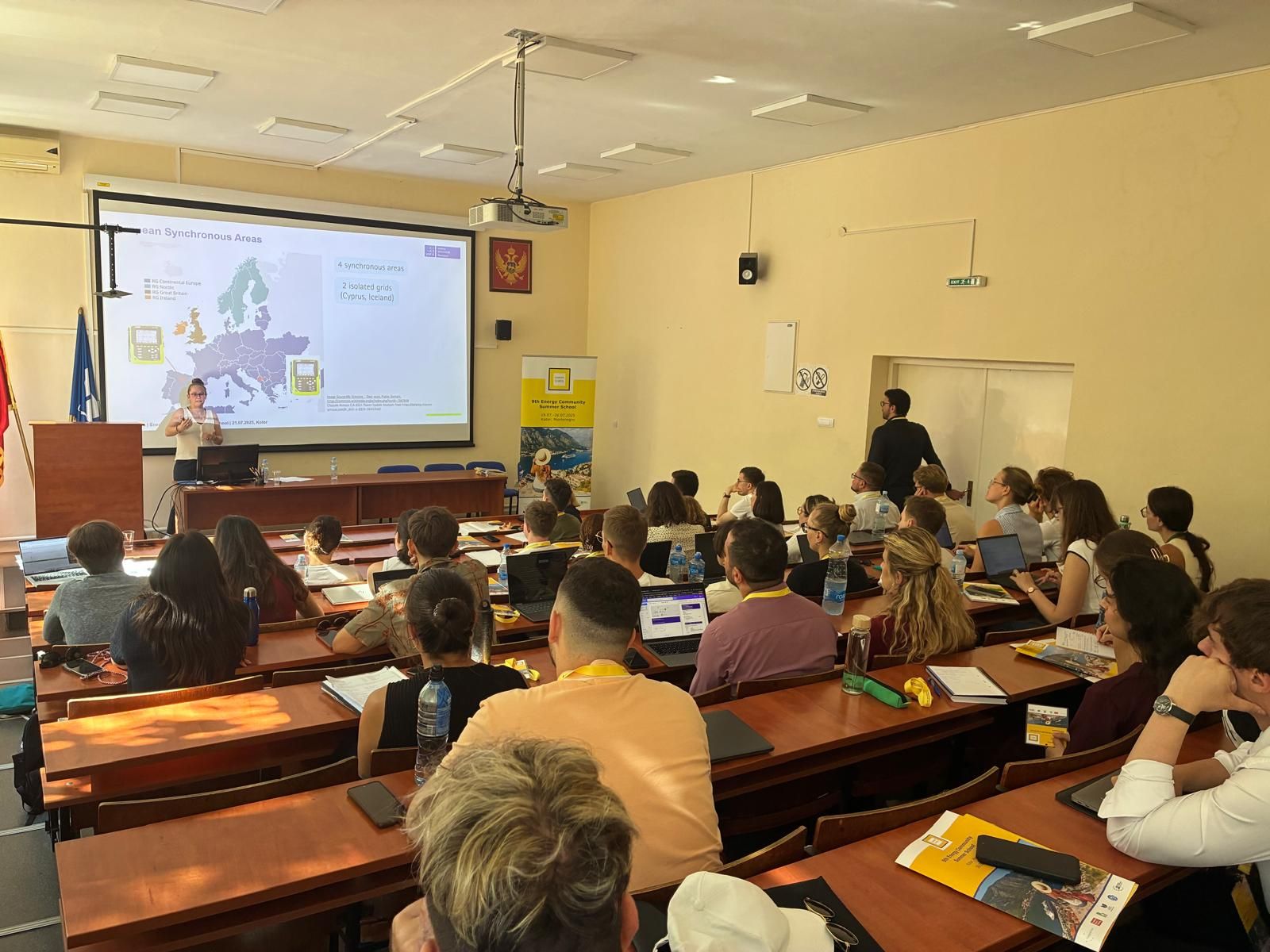
The 9th Energy Community Summer School Gathers Future Energy Leaders in Kotor
Forty participants from 28 countries convene in Montenegro to shape the future of Europe’s energy transition.
On July 19, 2025, forty young professionals and researchers from 28 countries gathered at the Faculty of Maritime Studies in Kotor, Montenegro, to dive deep into the pressing technical, political, and economic issues driving the energy transition.
The 9th Energy Community Summer School takes place at a pivotal moment for Europe’s energy future. With 2030 climate and energy targets fast approaching—and the region still grappling with the impacts of the war in Ukraine—this year's focus is designed to equip emerging energy professionals with the tools, knowledge, and networks needed to accelerate a sustainable and resilient transition across borders.
"The energy transition is no longer a distant goal—it’s happening now, shaped by technology, driven by policy, and tested by crises," said Artur Lorkowski, Director of the Energy Community Secretariat, in his welcoming address. "A successful and just transition depends on bringing together diverse people and perspectives to learn and exchange ideas—just as we do each year at this summer school, and as we’ve done for two decades across the Energy Community: building connections, aligning energy rules, and driving the shift to cleaner, more secure energy systems in our region."
Throughout the week, participants will work closely with leading experts from academia, industry, and policymaking circles to examine real-world approaches to transforming energy systems. Through lectures, case studies, and collaborative discussions, they will explore how innovation, cross-border cooperation, and policy reform can drive decarbonisation while supporting economic development and regional stability.
The 2025 edition attracted 242 applications from 58 countries. From this competitive pool, 40 participants representing 28 countries were selected: 18 from Energy Community Contracting Parties, one from an Observer country, 18 from EU Member States (including seven from the Visegrad Group), and the remainder from Switzerland, South Africa, and the United States. Among them, 27 hold a Master’s degree and 13 a PhD.
The programme is organised by the Energy Community Secretariat in collaboration with the International Visegrad Fund, Friedrich-Ebert-Stiftung – Dialogue Southeast Europe (FES-SOE), Elektroprivreda Crne Gore (EPCG), and the Montenegrin Electric Distribution System (CEDIS). Since its launch in 2016, the initiative has also been supported by Polis University (Tirana), Comenius University (Bratislava), Jagiellonian University (Krakow), Masaryk University (Brno), and REKK (Budapest)
The Summer School reflects the Energy Community’s long-standing commitment to building the next generation of leaders—those who will drive long-term integration, cooperation, and sustainable energy transformation across the region.


.jpeg)


.jpeg)

.jpeg)


.jpeg)